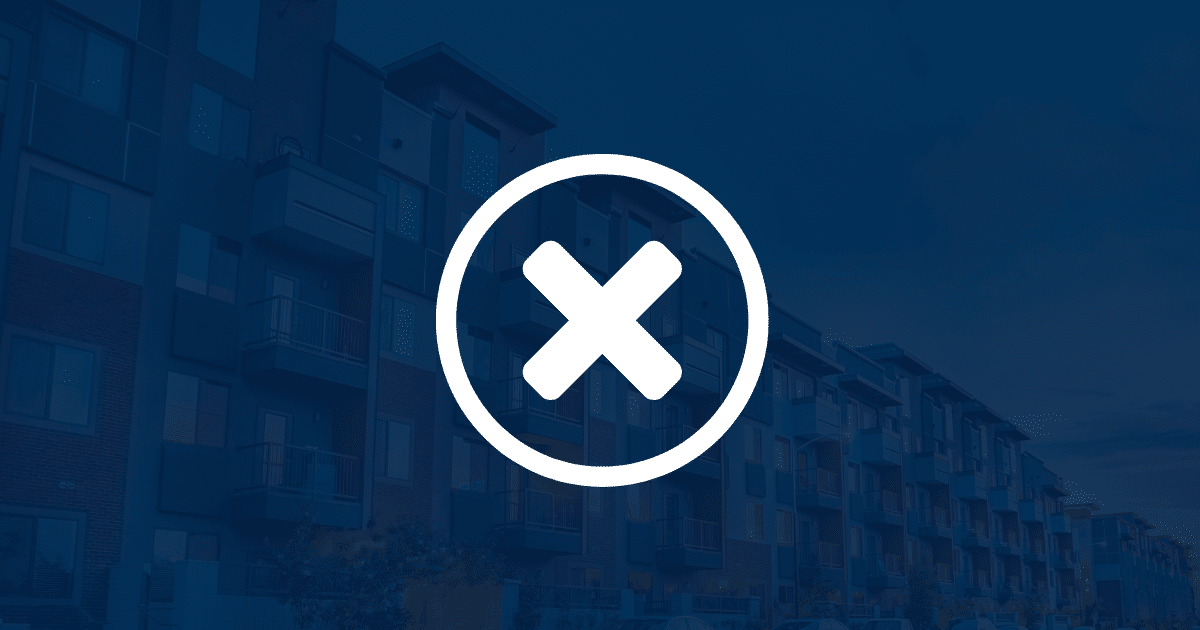
by California Casualty | Auto Insurance Info, Homeowners Insurance Info |
If you’ve ever sat down to read a declaration page on an insurance policy, you know there’s a lot that goes into the documentation. This information is clearly important, but there’s a lot of paperwork. Do you really need to keep it all, and for how long?
Here’s a quick reference guide for your insurance paperwork, including how to organize it, store it, and for how long.
Insurance Policy
Whether you have home insurance, an auto policy, a renter’s policy, or another type of coverage, you will be issued a document that spells out the insurance coverage. This main policy document is multiple pages. It includes all the details of your policy, including coverages and limits, discounts, and endorsements. It also is a resource with definitions of insurance terms and explanations of the claims process. If you are bundling your coverages, such as with home and auto, you will have an insurance policy document for each.
You need to know the coverage that you have, but you don’t necessarily need a hard copy of your policy document. If your insurer offers digital access on their website, you can toss the paper version. Either way, you will want to keep a hard copy of the declarations page.
Certificate of Insurance (COI)
This document is the summary of your coverage. Its format is easy to scan and provides a quick look at your coverage details. It’s especially useful to share with lenders who require proof of insurance if you are financing your home or car.
Keep a copy of your certificate of insurance for as long as the policy is active. It is your proof of insurance. When you renew your policy, you can throw out the old COI.
Insurance Claims Documents
Accidents happen, and things get damaged and stolen. You may file a claim with your insurance company when this happens. If your claim is for an auto policy, you will get an accident report. You also may have medical reports and bills. If your claim is for home damage or theft, you will have an inventory of damage. You also will have repair bills, receipts, and other paperwork. If it’s a third-party claim, where you caused injury or loss to another person, you will receive documentation as well.
Claims can sometimes take years, especially if medical bills are involved. As long as your claim is open, keep all of the paperwork. Only throw it out after you have received the payment.
Vehicle Insurance Card
Your auto insurance card fits in your wallet or glove compartment, which is where it should be kept. That way, you have a hard copy even if you have access to a digital version. Hard copies are useful in case you are pulled over by law enforcement or need to exchange the information with another driver in the event of an accident.
Keep the hard copy of your auto insurance card as long as your policy is active. You may dispose of it when the policy renews and you receive a new card.
Billing Statements
You will receive regular billing statements from your insurer, usually monthly. These may be by mail or online.
Keep your billing statements for tax purposes if you have a home business or you use your car for business purposes. If you’re audited by the IRS, you may need to show your bills for the last 7 years.
How to Store Documents
If you’re keeping paper copies of documents, you want to make sure that they remain in good, readable condition. Here are some recommendations to keep them that way:
-
- Never store your important papers in a basement in case of flooding.
- Keep your documents in a safe container in a climate-controlled space to reduce the possibility of mold and fading.
- Store papers in a waterproof and fire-resistant container. Consider a home lock box or safe or a filing cabinet.
- Consider digital storage as well, as a backup. You can store copies of papers on a flash drive. For a small fee, you also can store them in Dropbox and on iCloud and other services.
Pro Tip: Use plastic page sleeves for your documents for added protection. You can slide your documents into the sleeves and then file them in a binder or box.
How to Dispose of Documents
The general rule is that once a policy is done, you don’t need to keep the paperwork. (See the exceptions for claims documents and billing statements above.) But your insurance documents have personal information that could lead to identity theft if not disposed of safely.
-
- Always shred any old papers. Use a crosscut shredder that cuts in two directions to produce confetti.
- A small home shredder will work or you may find a free shredding event in your community.
- Local banks and other companies also may shred your papers for a fee.
- Remember to permanently delete old digital copies as well.
Going Paperless
Did you know, you can access your account online with California Casualty? Once you’ve signed up, you will have quick access to your policy(ies) at any time and from anywhere. You simply “Sign In” in the same right-hand corner where you created your account initially. And easy, secure access to this policy portal gives you the flexibility to:
-
- Download/Print ID Cards
- View/Download Your Declaration Pages
- Pay Your Bill Online
- Make Some Changes to Your Policy (Manage Drivers, Manage Vehicles, Manage Lienholders/Mortgagee)
- Contact Customer Service for Additional Support
- File a Claim
- Create/Save a New Auto Quote, etc.
Click here to learn more.
This article is furnished by California Casualty, providing auto and home insurance to educators, law enforcement officers, firefighters, and nurses. Get a quote at 1.866.704.8614 or www.calcas.com.

by California Casualty | Homeowners Insurance Info |
You found the perfect place to rent, and you’re ready to go. Moving company, check. Boxes and bubble wrap, check. Renter’s insurance?
If you’re wondering whether you need to purchase renter’s insurance, here are the most frequently asked questions.
What does renter’s insurance cover?
Renter’s insurance is like homeowner’s insurance but for tenants. As a start, it protects your personal belongings (that’s right, your landlord’s insurance policy will not cover your belongings) but that’s not all. It’s an important safeguard if you’re found at fault for property damage or injuries at your place (and even around the world). It also can help if you don’t have access to your apartment or home due to a covered loss.
Renter’s insurance policies offer (1) personal property coverage, (2) liability insurance, and (3) additional living expenses when your apartment or home is uninhabitable.
What is personal property coverage?
Personal property coverage protects your possessions. If they are stolen, or damaged by fire/smoke or other covered “perils,” your policy will pay for them. You’ll simply have to cover the smaller upfront fee known as the deductible.
You may choose the replacement cost or the actual cash value (ACV) for reimbursement. ACV is the amount the item is worth, minus depreciation for its age. It will cost a little more for a policy that provides replacement cost since that is higher than ACV.
With personal property coverage, you choose the amount of coverage based on how much your stuff is worth. The good thing is that your possessions are insured whether they’re at your place or away from it. For example, if you have a child away at college, who has an item stolen, your policy will pay 10% of your Personal Property Coverage C limit.
Note: Some policies limit certain types of possessions, such as jewelry. If you want a higher limit, you will need to add it to the policy.
What is liability coverage?
Liability coverage protects you if someone is injured and you’re legally liable. It could be at your place or it could be anywhere in the world. For example, if your dog bites someone, you’re covered. The policy pays for the bite victim’s medical expenses and covers court fees if they sue you. Liability also covers accidental damages to the place by you or your guests. So, if you accidentally set fire to your apartment, you’re covered. There are limits, so talk to your insurance advisor about an umbrella policy, which will provide much greater coverage.
What is loss of use coverage?
If a covered danger, like a fire or an evacuation, causes your residence to be unfit to live, your policy reimburses you for additional living expenses. For example, if you normally spend $200 per month on food and now it’s costing you $300, the policy will reimburse the additional $100. There’s a time limit and a dollar limit on this, so check on your policy’s details. Payment will be for the shortest time required to repair or replace the damage or, if you permanently relocate, the shortest time required for your household to settle elsewhere. It’s worth noting that if you have a Coverage Enhancement, there’s no deductible.
What exactly is the deductible?
If a loss does occur, a deductible will often apply. A deductible is the amount that you are responsible for, before the policy pays anything. So, before you get replacement or ACV for your possessions, you pay the deductible out of your pocket. Your deductible could be $250, $500, or more. You have a choice on the amount of the deductible. The lower the deductible, the more expensive the policy.
Note: There are times when there is no deductible. In a personal liability policy, for example, a deductible does not apply.
What isn’t covered by renter’s insurance?
Renter’s insurance doesn’t cover every situation. It does not cover damage from earthquakes, mudslides or floods. It does not cover infestations of rodents or bugs. There’s only limited coverage for theft of jewelry and firearms. A standard policy doesn’t cover your roommate’s possessions (though you could add them as an endorsement known as “Other Members of Your Household” for little or no cost). Renter’s insurance also doesn’t consider your car as one of your possessions. You need a separate auto insurance policy.
Note: Ask your insurer about home office and business computer coverage. That’s different than a personal policy.
Is renter’s insurance required?
Renter’s insurance is not mandated by law, but it may be required by your landlord, property manager or owner. Renter’s insurance helps keep others, including you, from seeking damages from them, even though they’re not responsible for your possessions. If you accidentally start a fire, the landlord’s insurance kicks in after they pay the deductible. But they could use your renter’s policy to cover that cost, so it’s a win-win for them.
What happens if you don’t have renter’s insurance?
If you don’t have renter’s insurance, you’re fully responsible for any property damage or loss. You’ll have to replace your possessions in the event of theft, fire, or other perils. You’ll have to pay the medical costs of anyone injured in your apartment. You’ll have to pay for additional living expenses if your apartment is inhabitable.
How expensive is renter’s insurance?
Renter’s insurance is surprisingly affordable. For as little as $10 a month, you can get a renter’s policy at California Casualty. The cost varies depending upon the coverages you choose, the deductible, your financial responsibility score, and multipolicy discount. Even your location can have an impact. Areas with higher crime rates will have higher insurance rates.
How much renter’s insurance do you need?
You want to have enough insurance to cover your possessions and any potential liability. Start by taking an inventory of what you own and putting a dollar figure on replacing our possessions. Then, take a look at your liability. Do you entertain a lot? Do you have pets? Determine the potential for injuries on site or any other property damage. You also want to take into consideration the amount of assets you have – such as your savings, etc. You want to make sure the amount you select will cover your assets. Then, choose the deductible that is affordable for you.
Can you get renter’s insurance after you’re already moved in?
Yes. You may purchase renter’s insurance at any time. However, it’s not retroactive. You cannot buy it after there’s been damage or theft.
Not all renter’s insurance is the same. Some policies cover more than others and costs vary. Check with your insurance provider to find out the options.
This article is furnished by California Casualty, providing auto and home insurance to educators, law enforcement officers, firefighters, and nurses. Get a quote at 1.866.704.8614 or www.calcas.com.

by California Casualty | Homeowners Insurance Info |
It’s time to make a move. Perhaps you landed that new job and you’re looking to live closer to work. Maybe you’re finally getting that extra square footage—and the backyard—you’ve always wanted. Or maybe you’re downsizing to a smaller rental. Moving is a fact of life. According to the U.S. census, Americans will move approximately 11.7 times during their lifetime.
But the big question is, will you do it yourself? Or will you hire movers? Here’s some guidance so that you can decide.
Moving Comparison At-a-Glance
| Do-It-Yourself |
Hybrid |
Moving Companies |
| Most affordable |
Affordable |
Most expensive |
| Time-consuming |
Time-consuming |
Least time needed |
| Need help from family, friends |
Don’t necessarily need help |
No help needed |
| Risk of injury, risk of lost or damaged goods |
Risk of injury, risk of lost or damaged goods |
Risk of lost or damaged goods |
Do-It-Yourself Moves
You’re strong and capable. You handle a lot of tough tasks in your life. Why not a move? Do-it-yourself, or DIY, moves are popular because they’re generally less expensive and we all want to save money. If you’re thinking about a DIY move, consider what’s involved in this type of move:
-
- You will need time in your schedule. If you don’t have enough time, this type of move is not for you.
- You will have to do all the organization and packing.
- You will likely need help from friends and family on the actual move day if not before.
- You will likely need to rent and drive a moving van or truck. You will have to pay for fuel and tolls.
- Factor in the time you will need to take off of work when you are moving yourself.
Hybrid Options
You don’t have to choose between a DIY move or a moving company. There are options that feature the best of both.
-
- Consider paying for labor to help with loading and unloading. Many truck rental companies offer add-ons of labor help. That way, you can do a DIY move with help.
- You can rent a portable moving container. In this type of move, a company drops the container or pod at your property. You load it up, and the company moves it to the new location, where you unload it.
Moving Companies
If you don’t have the time, or if you have a large move to make, hiring a moving company makes sense. Professional movers don’t just do the heavy lifting. They make moving less stressful and more efficient. But their services come at a cost. There are several factors that go into a moving company’s cost estimate:
-
- The size and weight of your belongings
- The travel distance, mileage and fuel, and time
- Packing and moving supplies if the company is contracted to handle those
- The moving date (Generally, moves done mid-month and midweek offer the best discounts).
What To Consider
Get a written cost estimate from your prospective mover. (We recommend getting at least three cost estimates from three different providers.) Make sure that the mover you choose is licensed and insured. Read the agreement carefully, including the small type, to ensure that there will be no surprises. Beware of moving companies who provide estimates for your move without visiting your home and taking an inventory of your belongings. Watch for movers who ask for cash or a large deposit before the move. You should only pay on delivery.
Most renters and home insurance policies will not cover your belongings while they are being moved. The moving company will offer liability and valuation coverage. You may decide to purchase additional moving insurance from a third-party provider. If you’re considering an interstate move, learn your rights and responsibilities as outlined by the Federal Motor Carrier Safety Administration.
Do you need to tip your movers?
Yes, it’s standard practice to tip each person who is moving you. Consumer Affairs recommends tipping 15% to 20% for long-distance or large moves. You can tip less, 5% to 10% for shorter, closer moves. This amount is split among the moving crew, so if your move costs $2,000 and you’re just going across town, plan to tip about $200 total.
How to Cut Costs and Save Time on Your Move
-
- Hiring a mover? Ask if there are cheaper dates and times to move.
- Downsize before moving. Donate or sell items that you no longer need or want. That way, you’ll have less to move.
- Use the buckets, baskets, clean trash cans, and suitcases that you need to move anyway to store items that you want to move. Use blankets and towels, in the same way, to protect and cushion breakables.
Be safe when looking at ways to cut your moving costs. You will often find websites offering helpful tools for moving such as moving cost calculators that require you to enter your information to get the link. What they neglect to tell you is that they will be sharing your information with moving companies. You will start to get calls immediately from dozens of companies trying to sell you services. Think twice about entering your information online.
Don’t Forget!
Whether you’re moving from a rental or you own a home, there are apps that can help you to organize your move and take away some stress. Here are some popular ones:
-
- MoveAdvisor
- Moved
- Dolly
- Unpackt
And if you’re moving because of work, your moving expenses may be tax-deductible! Keep your receipts and use IRS form 3903 to document your move when you file your taxes.
Here’s to the start of a wonderful adventure in your new home. Have a safe and successful move.
This article is furnished by California Casualty, providing auto and home insurance to educators, law enforcement officers, firefighters, and nurses. Get a quote at 1.866.704.8614 or www.calcas.com.

by California Casualty | Calcas Connection, Homeowners Insurance Info |
The real estate market is usually deemed “hot” when inventory is low and competition is high. Hot markets often mean quick turnover, crowded open houses, bidding wars, and sales that close above asking (and sometimes all in cash). To the surprise of many, we’ve been in a hot market nationwide throughout the pandemic, and there are few signs it’s cooling down.
If you’re planning to buy (or sell!) soon, you’ll want to position yourself well by doing some extra prep work and research than you would in a neutral market. That way, you’ll be able to make smart decisions fast and strike when you see the right opportunity. Follow these pointers to come out ahead.
For buyers and sellers
-
- Get a good agent – An experienced agent who knows your local market will be worth their weight in gold. If you’re a buyer, they should know about listings before they come on the market and know how to make your offer stand out. Ask for referrals from your network and social circles.
- Be patient – Especially for buyers, patience is a virtue in a hot market, when you can make many offers before your winning one is accepted. Try not to get discouraged – rather, stay focused on your goal! And if you’re a seller, patience will help you find the right buyer.
- Know what’s going on in your local market – Your agent will know what market trends and events mean for your goals and priorities, but it’s smart to follow the market movements yourself too.
- Don’t get emotional – Letting emotions influence the buying or selling process can lead to bad or regretful decisions. Practice mindfulness or other techniques to stay grounded in those stressful moments of the journey. It’s good to have some thresholds and decisions made ahead of time so you have some “guardrails” at the ready.
- Have your paperwork ready – Whatever papers and documents you’ll need for the process, get as many of them ready as possible beforehand. That way, you won’t lose precious time when the clock is ticking.
- Be ready to move quickly – Speed is the name of the game in hot markets. Things can change overnight, and the perfect opportunity might present itself out of nowhere. When the conditions meet your pre-determined criteria, move quickly.
- Keep your insurance until you close – Don’t make changes to your insurance or cancel it prematurely – no matter how sure a deal seems.
If you’re a buyer
-
- Be very clear on your budget. The absolute first step is to know how much home you can afford. Knowing your range is good too but be sure you know where your ceiling is – and stick to it once you start putting in offers.
- Know your must-haves and where you can be flexible. Have a clear understanding ahead of time what attributes your new home must have and what things can be changed, renovated, or aren’t all that important in the grand scheme of things.
- Window shop – Get a handle on the local market by touring homes that would be in your price range and meet your requirements. This way, you’ll gain a sixth sense and sharp instincts for when you start making offers.
- Get financing and a pre-approval letter. Make sure your financing is lined up and you have a pre-approval letter. You’ll want to go with a lender that delivers on their promises and has a track record of closing loans quickly.
- Leverage your agent. Your agent has ways to make you stand out from the rest of the bidders. For instance, they can find out what the seller wants by calling the listing agent or gleaning information from the multiple listings service (MLS), which has more information than public listings.
- Read our guide. If you haven’t already, check out our top tips for your home-buying journey (good for any market, including hot markets!)
If you’re a seller
-
- Prep your property. Sellers in a hot market will have more luck selling their home “as is,” but it can pay off to make any needed fixes before listing. This will help you attract more interest and multiple offers (which usually means a better sale price in the end).
- Consider staging. Staging is probably one of the best ways to position your property to sell quickly and at a good price. It puts your home in its best possible light and gives potential buyers a great first impression and good feeling in the space. It will also differentiate your property from others.
- Get the “pre-work” done. Go over what you might need with your agent ahead of time. They might suggest getting an inspection done before listing, lining up a title company, and other due diligence items.
- Manage your expectations. A hot market doesn’t guarantee that you’ll get multiple offers over asking. Each sale is the product of lots of different variables, which is why it’s worth taking extra steps to give your property every advantage.
With the right tools, knowledge, and strategies, you can do well in a hot market. Above all, remember to get a good agent, have patience and get the prep work done before hitting “GO.” Good luck!
This article is furnished by California Casualty, providing auto and home insurance to educators, law enforcement officers, firefighters, and nurses. Get a quote at 1.866.704.8614 or www.calcas.com.

by California Casualty | Homeowners Insurance Info |
Millions of Americans choose to rent over buying homes and apartments each year, and there are a ton of advantages. For instance, if a window starts leaking or the stove dies, you don’t have to pay for repairs or replacements. You have the flexibility to move when you want (subject to your lease), “try out” new cities, and avoid the big costs that go along with mortgage loans and homeownership.
To be a good tenant and start your rental out on the right foot, here are some important renter do’s and don’ts.

Do’s
Understand your lease – Make sure you and your landlord review the lease together and that you ask any questions you have. For example, does the lease allow subletters? What’s the duration and does it change after the first year?
Write an inventory – Make sure to document and log all existing damage or broken/non-functional items before you officially move in. Take photos and indicate any damage on a floor layout/ diagram. You don’t want to be on the hook for these repairs when you move out.
Understand your responsibilities – As the tenant, you may be required to do things like shovel the walk, keep the lawn mowed or hire a pool service.
Document problems – If there are ongoing issues or needed repairs, make sure you write down what happened, take pictures, etc. Alert your landlord to issues right away so they can take action. Keep a paper trail and keep it all in one place.
Keep it clean – Neglecting to bring the garbage bins in from the sidewalk or to keep the yard clean or tidy can quickly create an enticing environment for pests and rodents.
Check-in with your landlord – For minor repairs or maintenance, such as unclogging drains or replacing caulk or window screens, it’s best to check in with your landlord about how they want to address it (even if you’d like to just take care of it yourself). if you are unsure of anything or have questions regarding the property, like painting rooms or changing landscaping, reach out to your landlord.
Give them a heads up – On things like leaks, structural or foundation issues, and pest problems, alert your landlord as soon as possible so they can act on a problem that could get worse quickly or cause costly damage.
Protect your deposit – Besides treating your place well while you live there, when you move out, do a quality deep clean and don’t leave furniture or anything else behind that they’ll need to deal with.
Be a good communicator (and neighbor) – Good communications can prevent or de-escalate miscommunications and disagreements with your landlord as well as neighbors.
Know your rights – It’s important to know your rights as a tenant. They vary by state and city, so go here to learn more.
Get renters insurance – Renters insurance protects your belongings from theft and damage (nope, your landlord’s insurance won’t cover your things). It’s surprisingly affordable – get a quote today.

Don’ts
Hide a pet – If your lease specifies no pets, stick to the agreement (hiding a pet won’t work over the long term). Also make sure to adhere to animal weight limits, which are often established to allow only cats and small dogs in an apartment complex. Consequences for breaking these rules can include a hefty fine or even lease dismissal.
Undertake big renovations – We all want to make our homes more home-y, but complex projects such as adding ceiling fans or replacing cabinetry should only be undertaken by the property owner.
Fall behind on the bills – Depending on your lease agreement, you may end up being responsible for bills such as utilities, water, garbage, recycling, gardener, pest control or pool maintenance. Keeping those accounts current will ensure smooth maintenance as well as strengthen your credit.
Create a mildew problem – One of landlords’ most frequent complaints is about tenants not keeping moisture levels in check. To prevent mold and mildew formation, make sure to use vents and fans in bathrooms during (and after) every shower.
Cause damage – Treating your rental with care and respect will mean lessening the chances of inflicting damage such as stained carpets, scratches in hardwood, broken windows or fixtures, large holes in the walls, and water damage from plants. It will also ensure you get more (if not all) of your security deposit back. If accidental damage does occur (we’re only human, after all), make your landlord aware of it ASAP.
Landlords choose their tenants very carefully – especially those with nice properties. By taking care of your rental home and maintaining a good relationship with your landlord, you will set yourself apart as a responsible tenant. This will positively affect your credit score, help you get your whole security deposit back, and ensure you have a good reference for that next great rental.
This article is furnished by California Casualty, providing auto and home insurance to educators, law enforcement officers, firefighters, and nurses. Get a quote at 1.866.704.8614 or www.calcas.com.







